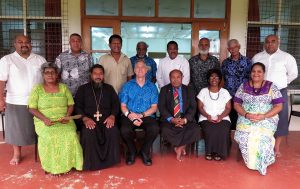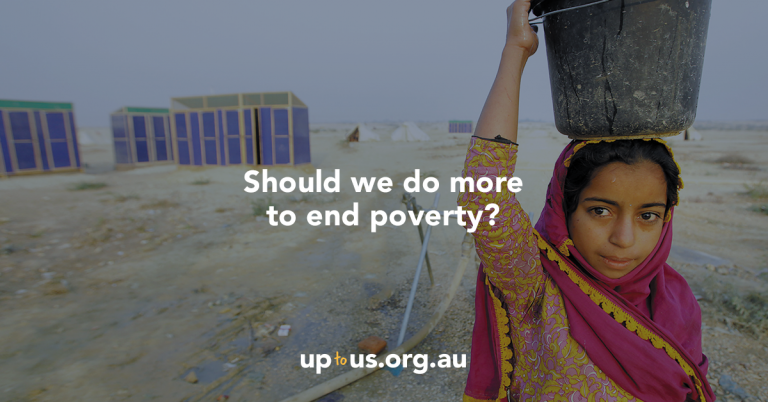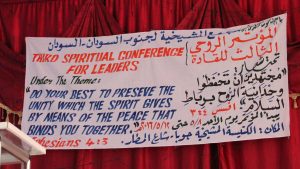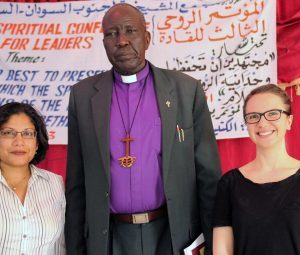Korean churches to Trump: We want peace
16 March, 2016
The National Council of Churches in Korea (NCCK) has released a statement urging President Trump to de-escalate the growing tensions between the United States and North Korea.
Tensions have risen due to the deployment of a US-supplied anti-missile defense system ‘THAAD’ (Terminal High Altitude Area Defense) in South Korea. In response, North Korea has announced they’re preparing a nuclear weapon, and many are predicting Kim Jong Un’s regime wants to strike first before THAAD is operational.
In a letter to international partners, the NCCK has made a call for peace and asked for prayers.
“[These] weapons are terrifying Koreans with the threat of nuclear war. We want peace for the Korean peninsula,” they said.
“Please pray for peace and justice on the Korean peninsula.”
Join us in answering their call. Please pray for peace, justice and for the people working across Korea to prevent war and nuclear disaster.
Letter to President Trump
Dear Mr. President,
On behalf of the National Council of Churches (NCCK), I bring the warmest greetings to you in the name of God of Peace.
The National Council of Churches in Korea wishes to express our concern with the growing tensions on the Korean peninsula. For over sixty years since the signing of the armistice agreement, the people of the Korean peninsula have lived in fear of war breaking out again in an instant. Where President Obama had failed using “strategic patience” you have the chance to either succeed in negotiation or on the other hand to bring disaster upon us.
Especially we worry now as the THAAD missile defence system has arrived in South Korea, and North Korea has fired off four missiles in response. We fear the tensions have risen higher than they have been in decades. We ask you to move now. Turn back these steps toward war, and take up a successful strategy for denuclearizing the Korean peninsula.
We have heard your administration is considering a pre-emptive strike on North Korea as one of your options. We urge you to take this off the table, as it would guarantee an all-out war. In this current situation of upheaval around South Korea’s presidency and impeachment process, ruling party members are clamoring more loudly for South Korea to obtain its own nuclear weapons. All of these actions take us closer to open battle. Turning the Korean peninsula into a battlefield again would ensure our annihilation.
We ask you to seek dialogue with North Korea immediately to decrease tensions. Dialogue is the only way toward de-escalation and convincing the North that their immediate survival is not at stake and does not depend on military defense.
For the sake of our continued existence we call upon you to enter into dialogue and turn Northeast Asia away from what might begin a new world war.
Sincerely,
Rev. Dr. Kim, Young Ju
General Secretary
National Council of Churches in Korea
This was posted in solidarity with our partners, the Presbyterian Church of Korea (PCK), the Presbyterian Church in the Republic of Korea (PROK), the Korean Methodist Church (KMC) and the National Council of Churches in Korea (NCCK).
The National Council of Churches in Korea is the largest ecumenical agency in South Korea. Supported by the major Protestant denominations, it is at the centre of movements for human rights and peace across Korea. Many Korean churches are working faithfully to bring peace, reconciliation, and reunification to the Korean peninsula.
Photo via koreareport2.blogspot.com





 the Ekalesia Kelisiano Tuvalu, the Kiribati Uniting Church and the United Church in Solomon Islands.
the Ekalesia Kelisiano Tuvalu, the Kiribati Uniting Church and the United Church in Solomon Islands.






 The MCIF then organized hundreds of volunteers and Methodist youth to help sort and distribute goods in the days following the emergency, ensuring the relief supplies were quickly transferred to where they were needed most.
The MCIF then organized hundreds of volunteers and Methodist youth to help sort and distribute goods in the days following the emergency, ensuring the relief supplies were quickly transferred to where they were needed most.
